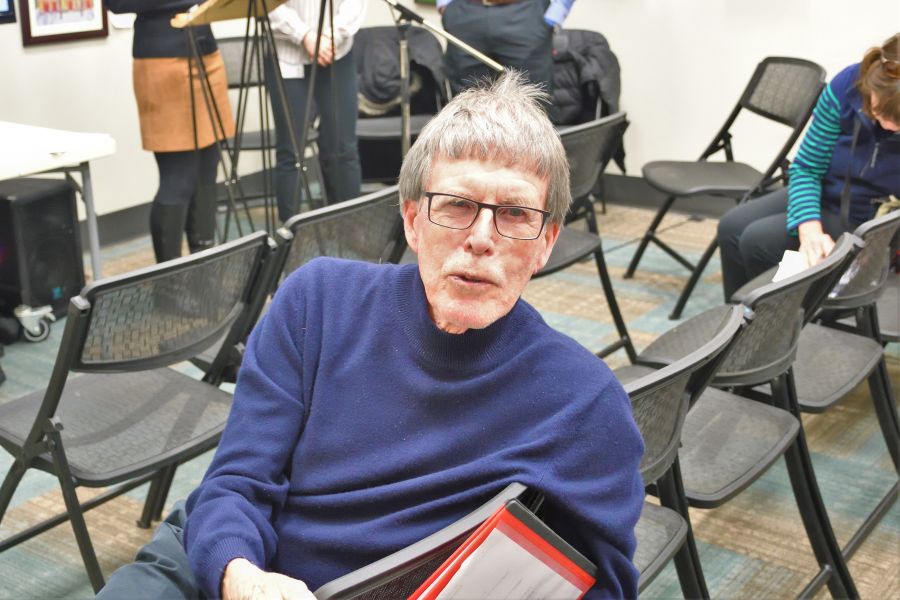Dedicated NOTL care workers find ways to engage residents with fun and dignity
It can’t be easy caring for residents in long-term care facilities, especially for those who have major cognitive and mobility problems.
Some lose their memories of families and friends and even how to care for themselves. For diseases like Alzheimer’s, frontotemporal and other degenerative dementing disorders, there’s little hope of stopping, never mind slowing, the progression of their failing brains and mobility.
That’s what makes caring for residents with dementia such a huge challenge for their families and caregivers.
Left to their own devices, residents pace the corridors or pedal their wheelchairs about with their feet, sometimes bumping into others with barely a nod, or sit staring blankly or often fall asleep until someone or something stirs their interest.
Occasionally residents talk with one another but rarely for more than a few moments and often when one gets in the way of another. Television or music are on much of the time, but without a staff member in the room to engage their interest, most residents soon nod off, while others get up and wander about.
It all seems so hopeless.
But that’s only true if the goal is holding their own or improving. More realistic as a goal is to hire staff to create programs that engage the interest of the residents as they are and will become.
That’s a tall order. But it’s one that has been successfully fulfilled at a nursing home in Niagara-on-the-Lake, where my wife resides.
From my observations, programs that work best are live performances, whether musicians, visiting clergy or staff who are specifically trained to enrich the lives of the residents.
At Niagara Long-Term Care, I don’t know whether the residents pay much attention to the content of the sermons of Carson Culp, the visiting chaplain, but he never seems to stop moving and often steps toward this or that resident, sometimes calling them by name.
His dynamic, entertaining style and friendliness gets the residents’ attention and in my view that’s what’s most important about what he accomplishes and well worth his time and effort.
The accompanying singalong of familiar hymns adds to the value, especially when there’s an enthusiastic, zippy musician at the piano.
Live music shows accompanied by lots of movement by the players and familiar songs also get the appreciative attention of most of the residents – you can see it in their faces, the way they move their bodies and tap their feet in time with the music.
Niagara Long-Term Care has now purchased several robotic cats and dogs and from what I’ve seen, they are a big hit.
The animals look and feel real enough and have an astonishing repertoire of familiar movements in response to stroking – especially the cats. Residents respond as they would have with a favourite cat or dog in past times and would probably hold on to them for hours were it not for failing batteries in the robots.
But perhaps the best of the lot are two staff members, Pam Cashmore, and Emily Howcroft, who are trained to create programs for the residents.
Remember, this is a hard group to entertain and hold their attention. So, whether the program involves a game of trivia, bingo, painting flowers, folding towels, or painting the nails of female residents, unscripted, disruptive moments happen.
Sometimes on impulse, residents get up and wander out of the room, or others join in. At other times, out of the blue, a resident might walk over to Pam or Emily to get their attention about something unrelated, or perhaps someone else begins to slide out of their chair.
But whatever happens, each and every interruption is calmly handled and the show goes on with most residents paying attention, most of the time. Often Emily and Pam are surrounded by residents on all sides.
What amazes me is that they seem to have eyes in the backs of their heads to keep track of the residents, even those behind them. It’s a real skill and depends on experience and familiarity with the interests, capability and behaviour of all the residents in their charge. Not easy.
I regularly witness these programs at the Wellington Street facility and to me they accomplish exactly what is needed: they bring interest, cognitive challenge, variety, fun and dignity to the lives of residents who struggle to make sense of the world they inhabit.
That’s no small achievement.
More and greater variety in programs are essential to enrich the waking hours of residents. It’s the least we can do for those who in earlier years contributed so much to our society.
Caring for residents in long-term care is a challenging, tough, demanding vocation but because that care takes place out of sight of the wider community, those caregivers often don’t receive the recognition they so richly deserve.
Dr. William Brown is a professor of neurology at McMaster University and co-founder of the InfoHealth series at the Niagara-on-the-Lake Public Library.










